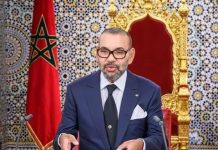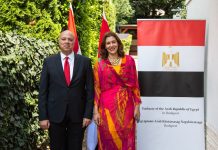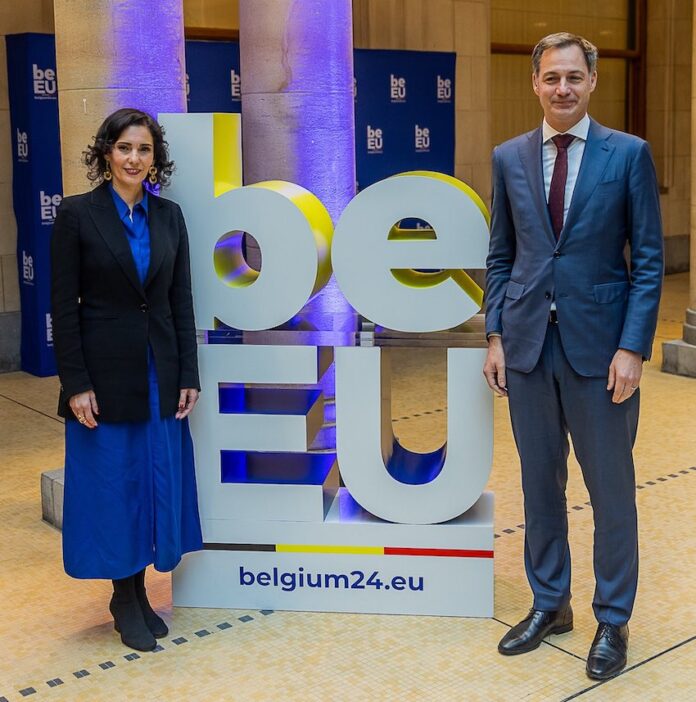“The vision of the Belgian Presidency is intended to be holistic”
Edited by Anna Popper
Belgium assumes the Presidency of the Council of the European Union for the thirteenth time from 1 January to 30 June 2024, under the motto for this term: “Protect, Strengthen, Prepare”. Belgium, one of the founding members of the European Union, exemplifies the deep-rooted connection to the Union. Situated at the crossroads of Europe, this country has played a key role in the creation and evolution of European cooperation.







Belgium’s pioneering role in the European Union

Belgium’s story within the EU began in 1951 with the establishment of the European Coal and Steel Community (ECSC) together with France, Germany, Italy, Luxembourg and the Netherlands. This cooperation developed into the European Economic Community (EEC) and the European Atomic Energy Community (Euratom) in 1957 thanks to the ground-breaking Treaty of Rome. The EEC ultimately morphed into today’s European Union in 1992, which now has 27 Member States. As one of the original six member states and the first president in 1958, Belgium has continued to play a pioneering role, including launching its first trio presidency in 2010.

Brussels: Capital of the European Union
Belgium’s central role in the EU has resulted in numerous European institutions being based in Belgium, primarily in Brussels, which is justifiably called the ‘Capital of the European Union’. With 38 EU organisations, including the European Parliament, the European Council, the Council of the European Union and the European Commission, Brussels is the beating heart of European decision-making. Around 15% of the European Commission’s staff are Belgian, and Belgium has 21 of the 720 seats in the European Parliament. Brussels is also home to leading international organisations such as NATO, the United Nations, UNICEF and the World Bank.



Message from the Belgian Prime Minister, H.E. Mr. Alexander De Croo:

“Protect, Strengthen, Prepare” – with this slogan, Belgium took over the presidency of the Council of the European Union for six months from 1 January 2024. It concisely and powerfully encapsulates the six key themes of this 13th mandate.
Protect: This term strongly resonates with the protection of citizens and borders, underscoring the Presidency’s commitment to ensuring the security and well-being of Europeans. It also encompasses defending democratic values, the rule of law, and unity, including support for Ukraine, which reflects the first theme. It also suggests strengthening the social and health agenda.
Strengthen: This word echoes the enhancement of the EU’s competitiveness on the global stage. It emphasizes the importance of consolidating European unity and solidarity to face internal and external challenges. This includes a just and equitable transition, ensuring that sustainable development and environmental policies are approached with a forward-looking vision.

Prepare: Finally, ‘prepare’ refers to preparing for the upcoming expansions of the EU and anticipating future challenges. This term highlights the importance of anticipation and strategic planning in all areas of EU action. It also refers to the need for internal reform of the Union to preserve its future capacity for action.
In summary, the vision of the Belgian presidency is intended to be holistic, focusing on protecting the people and achievements of the EU, strengthening its economy, structures and capabilities, and proactively preparing for future challenges. The presidency slogan and the six key themes it encompasses symbolize the commitment to a safer, stronger, and more resilient Europe, able to navigate the complex and rapidly changing landscape of global politics.



“We are experiencing a pivotal time for Europe. The current challenges are immense. Two wars right on our borders. Increased geopolitical tensions. The necessary sustainable transition of our economy. Several challenges and the timing is tight as we are at the end of the mandate of the European Parliament and the European Commission. This unique context gives us, as a presidency, a double mission” – Hadja Lahbib, Minister of Foreign Affairs of Belgium, stated during the presentation of the priority themes of the Belgian Presidency.

The six priorities of the Belgian Presidency

1. Defending the rule of law, democracy and unity – that is in the Union’s DNA.
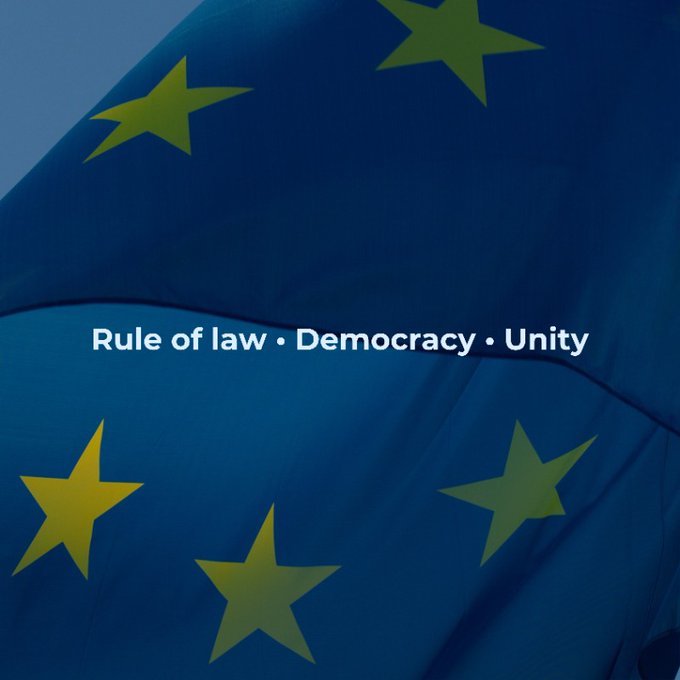
The European Union is based on respect for fundamental rights, the rule of law and democratic values, paving the way for cohesion, the protection of individual freedoms, equality and non-discrimination, and our citizens’ well-being. Defending the principles of democracy, the rule of law and fundamental rights will be an essential element in the work of the Belgian Presidency of the Council. The Presidency will strengthen citizen empowerment and inclusion, with a special focus on youth participation, as well as work in the European education area, quality of education, lifelong learning, mobility and sport. It will promote democratic values by reinforcing media freedom and pluralism, stimulating the digital transformation of the cultural and creative sectors, and exploring the links between culture, heritage and European identity. In this regard, working together at different levels of government will enable us to respond effectively to a wide range of needs and challenges, while respecting the principles of subsidiarity and proportionality. Enlarging our Union must make us all stronger. The Presidency is therefore committed to supporting the candidate countries in their efforts to join our Union. At the same time, it will be crucial to prepare the Union’s policies, resources and decision-making structures in view of future accessions.
2. Strengthening our competitiveness

Given the evolving geopolitical realities and the rapid development of new technologies such as artificial intelligence, the EU must prioritise its long-term competitiveness and industrial policies. The EU must ensure a level playing field for businesses, especially SMEs, enabling them to compete fairly both within Europe and on the global stage. A coherent, predictable and simplified regulatory framework is crucial. The EU must lead the way in creating a sustainable, innovative and resilient digital ecosystem that empowers citizens and benefits businesses. The Belgian Presidency will work to strengthen the EU’s internal market and industrial future, and continue work to complete the Capital Markets Union (CMU) and the Energy Union. Particular attention will be paid to enhancing our economic security, reducing harmful dependencies, and promoting our technological leadership in critical sectors. The Presidency aims to strengthen the role of research, development and innovation to become a frontrunner in developing and commercialising tailored solutions that boost key EU value chains’ resilience and competitiveness. It will work towards a labour market shaped for the future that increases employment rates and stimulates growth. It will underscore the significance of both public and private investments. It will also underline the importance of cohesion policy as an essential long-term investment tool, as a catalyst for transformation and convergence, and as cement for the European Union. Particular attention is paid to our food production autonomy. The Presidency will focus on coherence between the EU’s internal and external policies.
3. Pursuing a green and just transition

The EU’s ambitious transition agenda is driven by the urgent need to address the triple crisis of climate change, biodiversity loss, and pollution. The Belgian Presidency underscores the importance of decisive and holistic action, leaving no one behind. Carrying on with the Green Deal, the Presidency will place the energy and climate transition at the heart of its priorities. To reduce vulnerabilities to climate change, the Presidency will strive to enhance the Union’s circular economy and adaptive and preparedness capacities. It will also promote sustainable water management. Geopolitical and extreme climate events have highlighted the need for an accelerated and inclusive energy transition. This transition should deliver affordable energy to citizens and companies, ensure strong and reliable security of supply, and contribute to the objective of climate neutrality. The EU must fully leverage its energy efficiency potential across the entire economy and rapidly advance the development of renewable and low-carbon energy sources and carriers. To this end, increased investment to deliver a flexible, integrated European energy network is essential.
4. Reinforcing our social and health agenda

Building on the European Pillar of Social Rights, the Belgian Presidency aims to equip the EU with an ambitious social agenda to foster a European society that is more inclusive, gender-equal and fair for all. The Presidency will seek to strengthen social dialogue at all levels, promote fair labour mobility, mental health at work as well as access to sustainable social protection. The aim is to strengthen the social dimension of the European semester – with particular attention to the first implementation of the Social Convergence Framework and the potential of social investments – and to promote a framework conducive to the development of the social economy. The Presidency will also advocate for increased political actions in order to guarantee access to decent and affordable housing for all. Furthermore, the Presidency will support the evaluation of the EU’s crisis preparedness, strengthen the security of medicines supply and develop a strategy to boost the EU’s health and care workforce. To improve citizens’ access to affordable medicines, the Presidency will work to better address unmet medical needs.
5. Protecting people and borders

The Presidency aims to address all remaining legislative files associated with the new European pact on migration and asylum. The Pact will reinforce trust between Member States in a spirit of responsibility and solidarity, bring legal clarity to people arriving in the EU and ensure humane and effective management of migration for EU citizens, in line with our values and international law. It will also offer a common and fast reaction to migration crises and improve legal pathways to the EU. The Presidency will work to strengthen the external dimension of migration and asylum, especially through close cooperation with our African partners, as part of our broader efforts to continue to develop a mutually beneficial partnership between our two continents, in full respect of international law. The Presidency will pay particular attention to combating organised crime, preventing and tackling terrorism and violent extremism, and bolstering the EU’s resilience to crises and to new and hybrid challenges. Safeguarding our citizens necessitates discussions on the future of European security and defence towards a more integrated Union approach. The focus will be on strengthening the European defence technological and industrial base, including by exploring the possibility of developing a European Defence Industry Strategy.
6. Promoting a Global Europe

The multilateral system and the rules-based international order face increasing strain from geopolitical confrontations, including the return of open war on the European continent. To adapt to this reality, the Presidency will vigorously pursue the EU’s efforts to strengthen its resilience and autonomy, and defend its interests and values. In this more assertive approach, the Presidency will also emphasise that openness, dialogue, and cooperation are at the heart of the EU’s conception of its interests. To achieve its foreign policy goals, the EU must fully mobilise its economic, security and defence capabilities, as well as its development and humanitarian assistance capacities. This includes an ambitious and balanced trade policy that is open, sustainable and assertive. This requires a reinforced, rules-based multilateral trading system. In line with the 2030 Agenda, the Presidency will promote health care system strengthening as a basis to reach universal health coverage, while ensuring equitable access to innovative, resilient, sustainable, and high-quality health services and products for all.
Preparing Europe for tomorrow – As a cross-cutting theme, we are thinking today about the Europe of tomorrow. The Union needs to strengthen its foundations, reform itself. This will happen by finding better funding for the Union, and through greater efficiency in our decision-making processes. At the same time, the candidate countries have to continue their reformation efforts for possible future integration. On the subject of enlargement, the European Council will define the procedure to be followed in its December guidance.
The Belgian Presidency will work in this spirit over the next six months.



The Belgian presidency is important owing to the timing, with the European elections in June 2024 in view. During these six months, more than 530 informal and around 2,000 formal meetings take place. These include preparatory meetings and informal meetings of national representatives in Council working groups, bringing Member States’ ambassadors together with the EU, as well as ministerial meetings and summits up to Heads of State and Government level. Almost 150 formal and informal meetings are organised at ministerial and head of state level alone. Events are also organised in various Belgian cities, including Brussels – the capital of the EU. As President of the Council, Belgium will coordinate its operations and promote collaboration between EU member states.
“We are keen to make this presidency a collective success: for Belgium, for Europe and the impact it has on the world and our citizens.” – by Hadja Lahbib, Belgian Minister of Foreign Affairs

Opening Concert of the Belgian Presidency in Brussels:
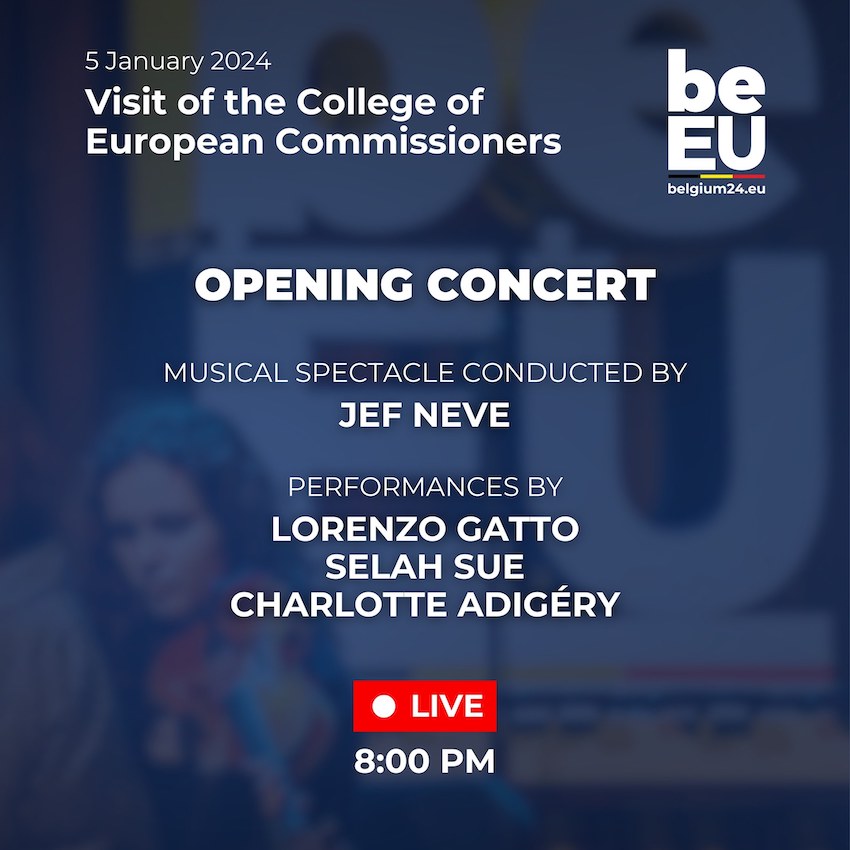
On the 5th January, the Belgian Presidency was inaugurated with a great concert in the magnificent Henry Le Bœuf Hall at Bozar, a mythical venue in Brussels, designed by the renowned Belgian architect Victor Horta. The solemn evening was attended by Their Majesties King Philippe and Queen Mathilde of the Belgians, as well as numerous national and international dignitaries, including Ursula von der Leyen, President of the European Commission and Charles Michel, President of the European Council. The music program featured tunes from iconic Belgian artists such as Jacques Brel, Arno, Stromae and harmonica player Toots Thielemans, performed by an orchestra of Belgian musicians from all regions, conducted by Jef Neve, alongside violinist Lorenzo Gatto and singers Selah Sue and Charlotte Adigéry.
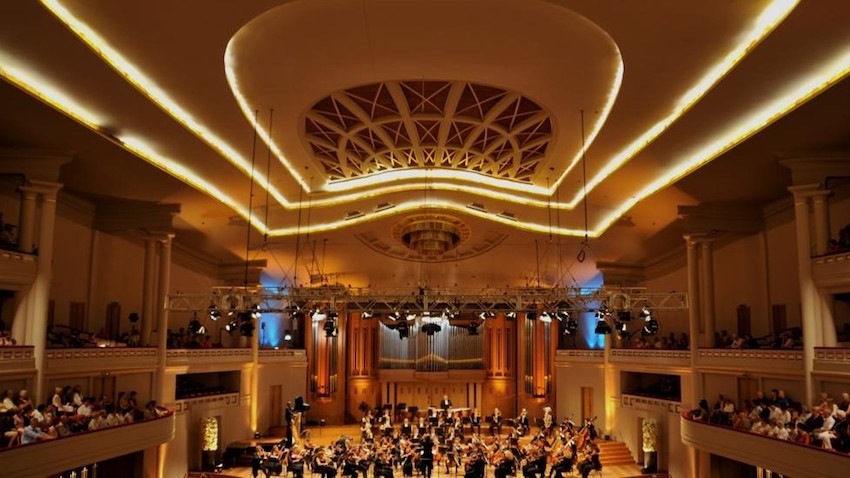
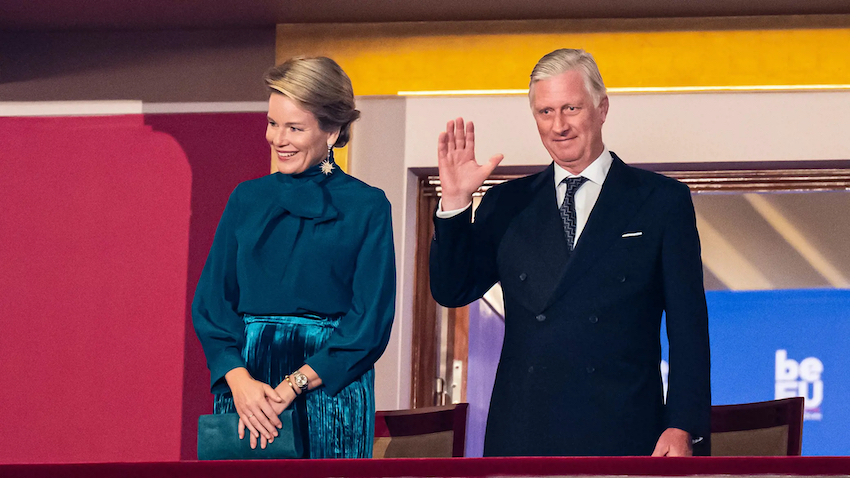
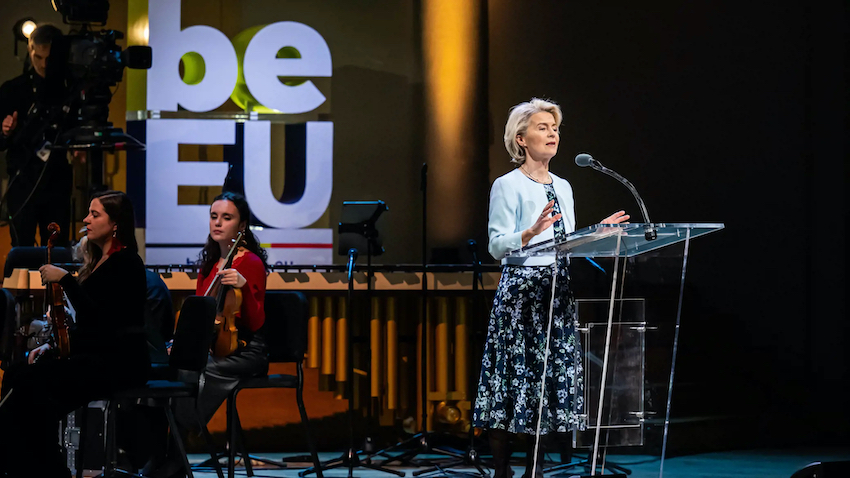
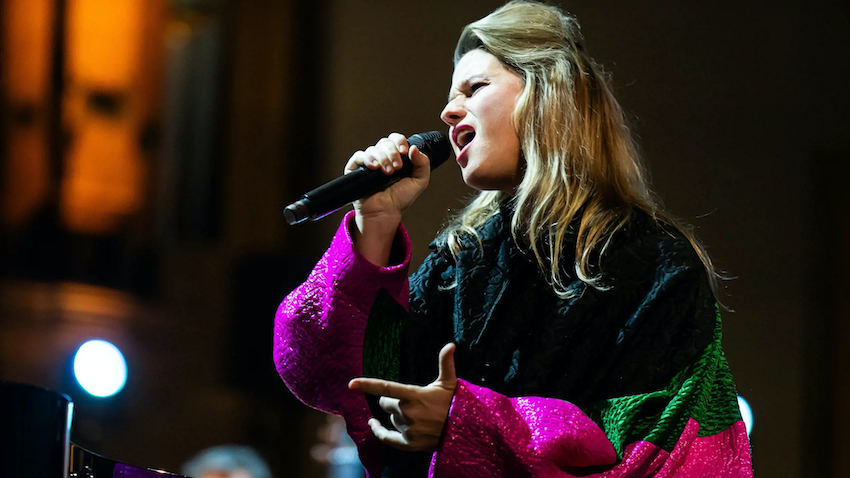

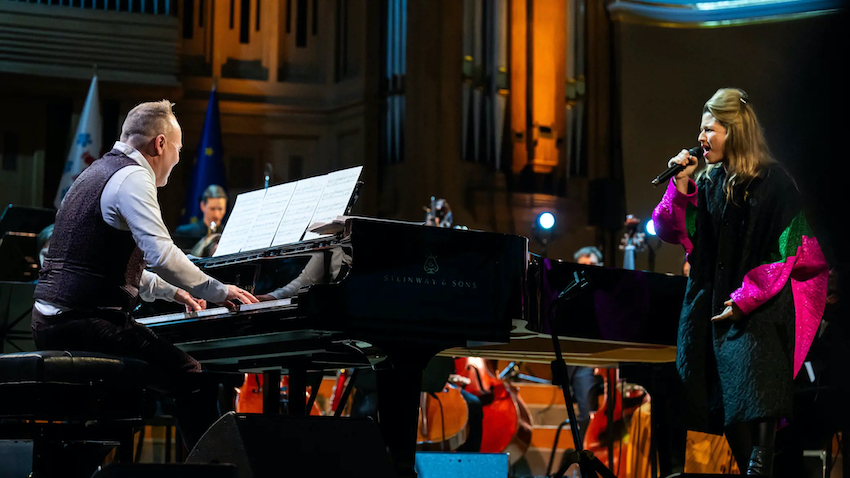
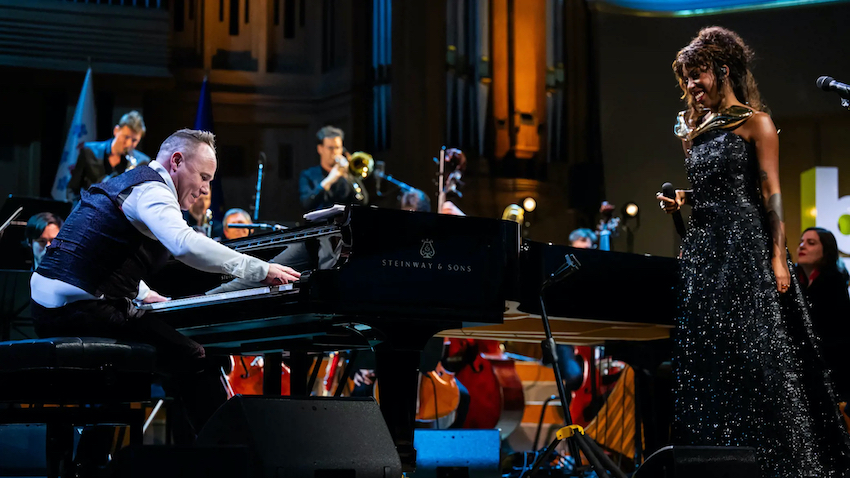
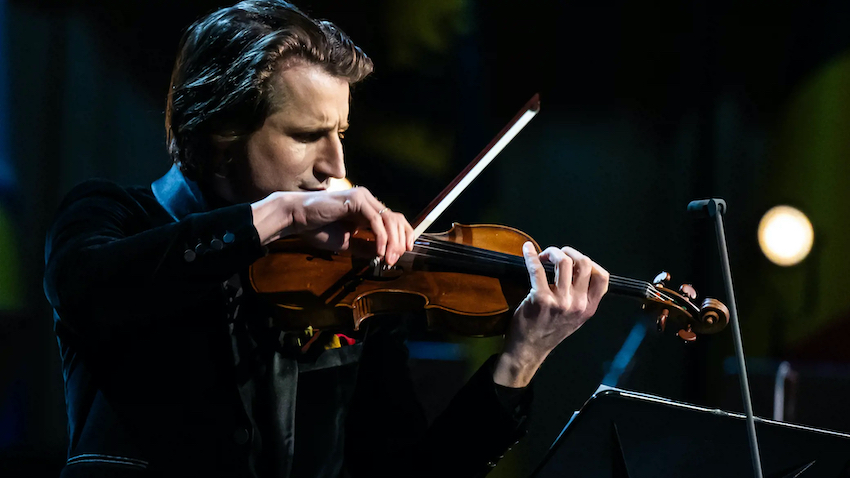
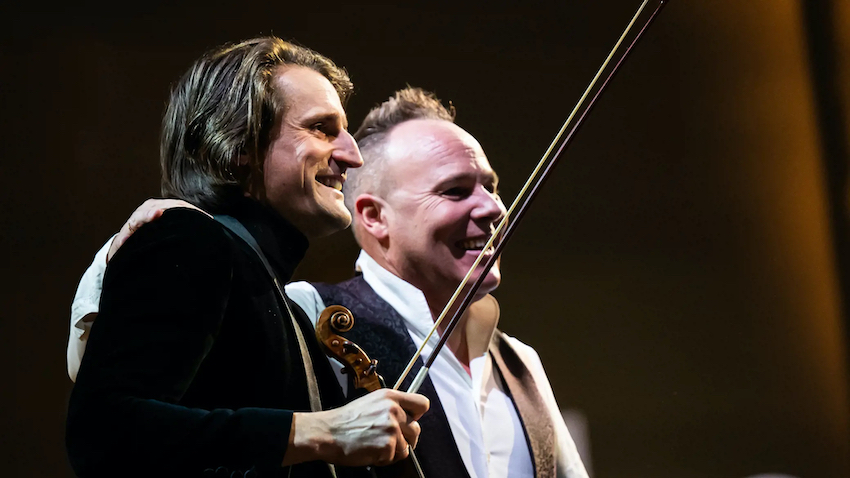
Jazz Concert in honour of the Belgian Presidency in Budapest
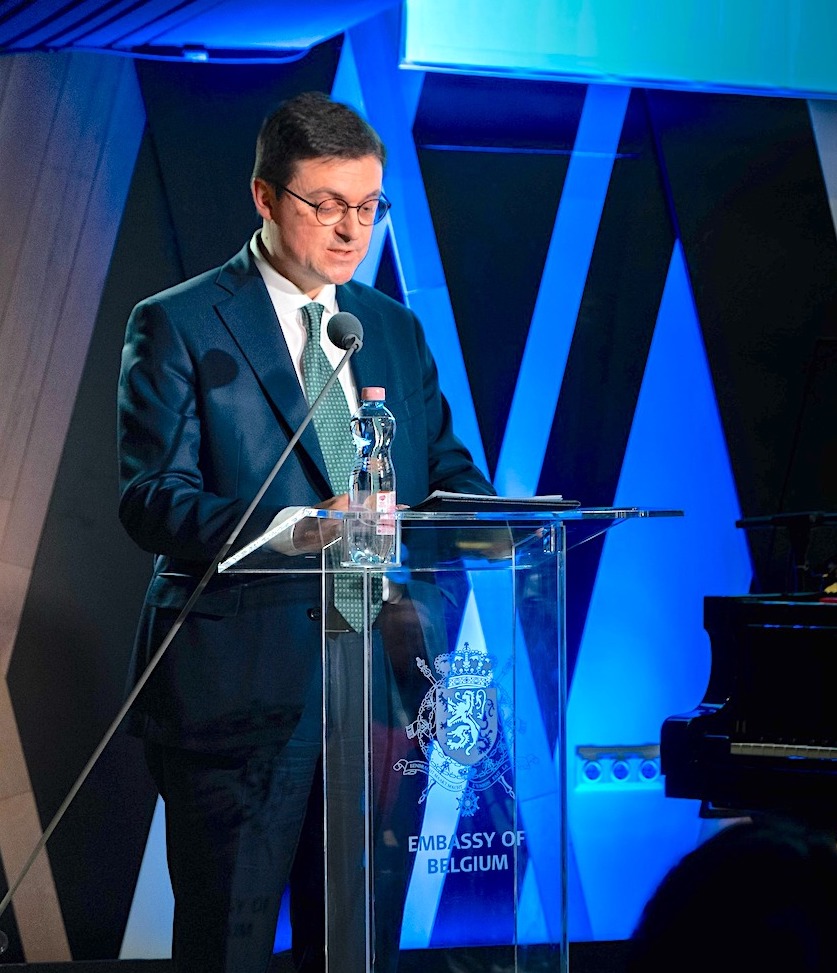
The Belgian EU Council Presidency in Budapest commenced with a captivating Belgian-Hungarian jazz concert organised by the Embassy of Belgium at the Budapest Music Centre.
H.E. Jeroen Vergeylen, Ambassador of the Kingdom of Belgium to Hungary, and Mr. Koenraad Van de Borne from the Flemish Representation to Hungary hosted a concert for the members of the diplomatic corps and high representatives of the Hungarian government, including Tibor Navracsics, Deputy Prime Minister and Zsolt Németh, Chairman of the Foreign Affairs Committee of the Hungarian National Assembly, honouring the event with their esteemed presence.

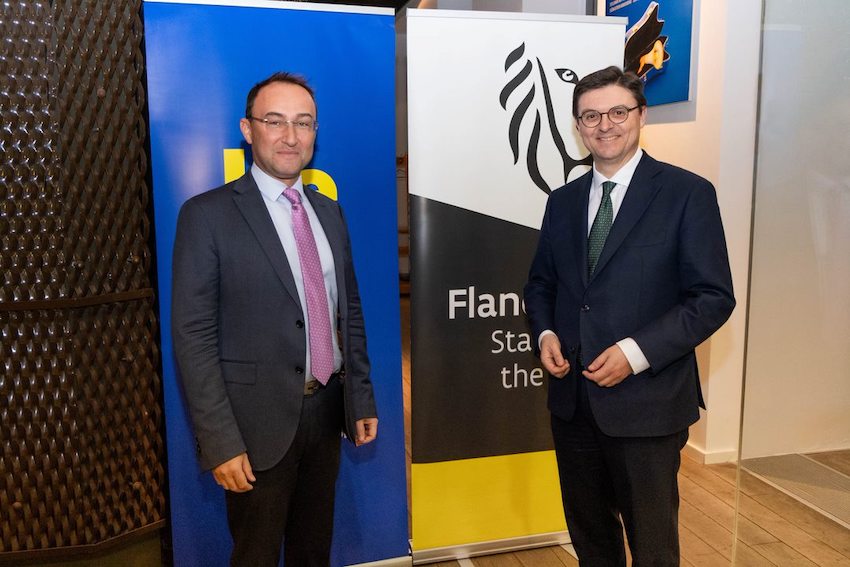
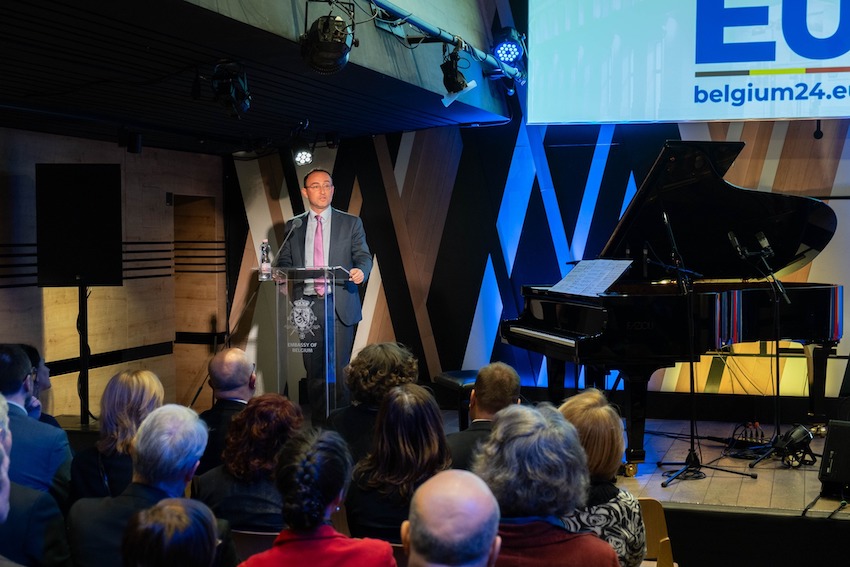
The jazz duo on stage of the Opus Jazz Club combines the creative genius of Kris Defoort (Belgium), pianist, composer and improvisor, who excels as a major figure in the European jazz music and classical opera scene. He created a highly individual musical language that redefines musical traditions in an original way. His music is characterised by the encounter between classical and jazz music, and between written compositions and improvisation. He accompanied on the piano the legendary Veronika Harcsa, famous Hungarian jazz vocalist and songwriter, known for her rich, expressive voice that has traversed diverse musical realms. The flawless performance of this perfect duo symbolized the synergistic collaboration between Belgian and Hungarian artists, epitomizing the spirit of harmony.
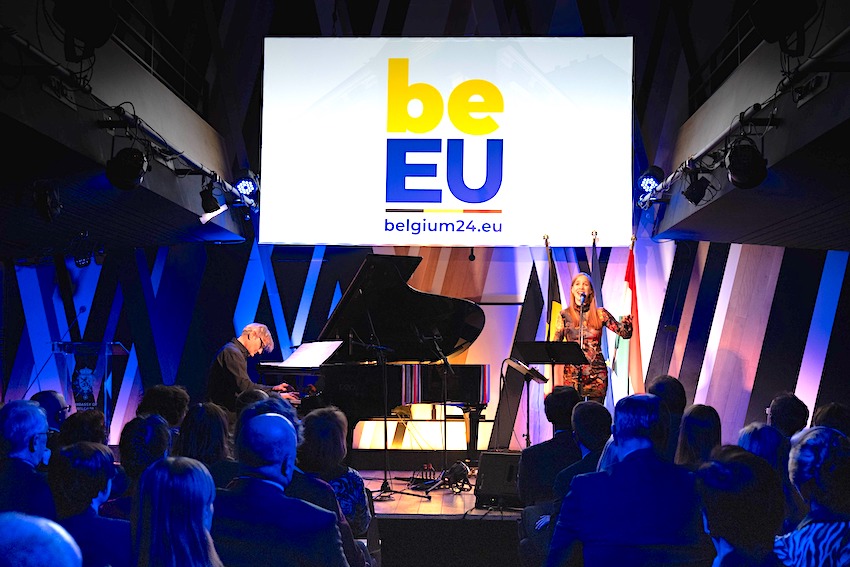
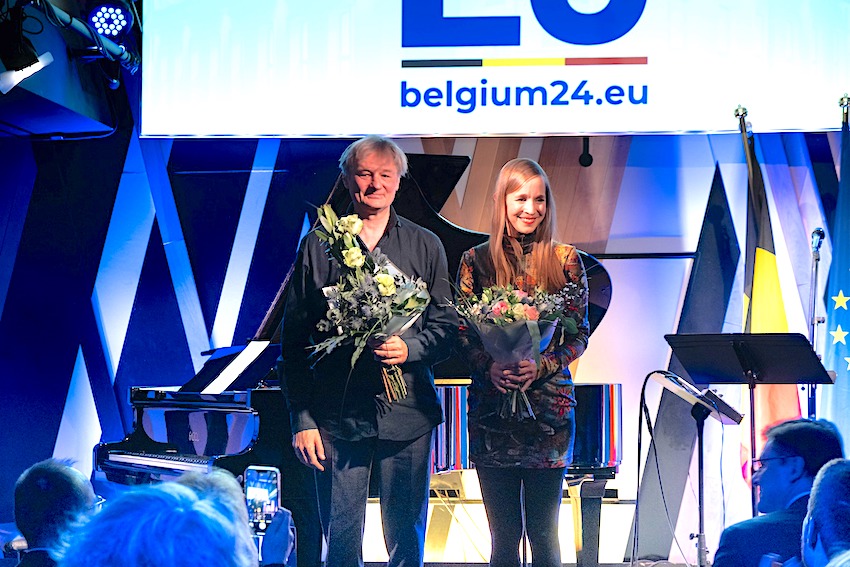
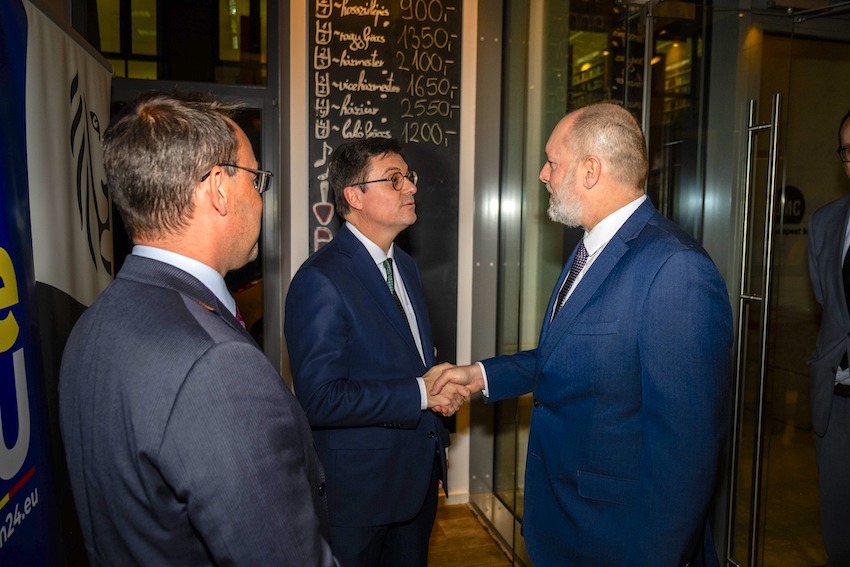
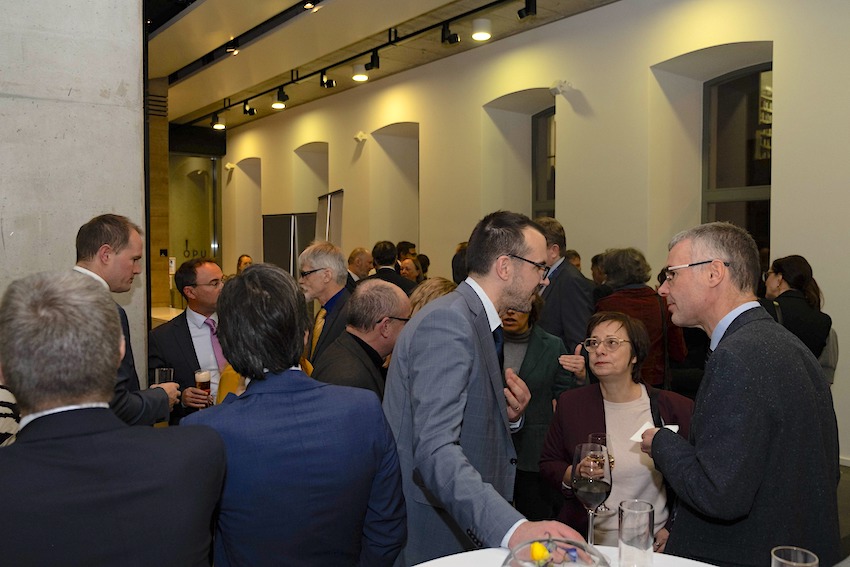
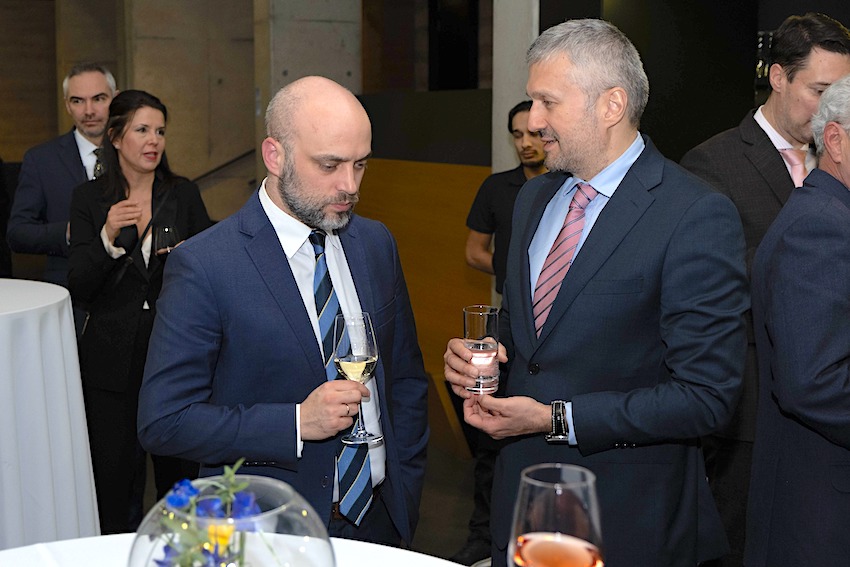
Source: Embassy of Belgium in Budapest,
www.belgian-presidency.consilium.europa.eu





